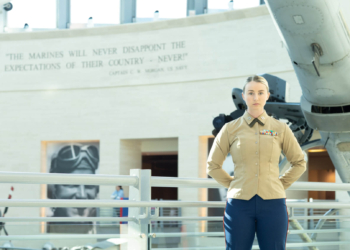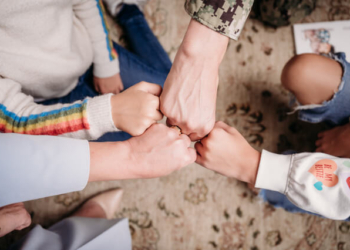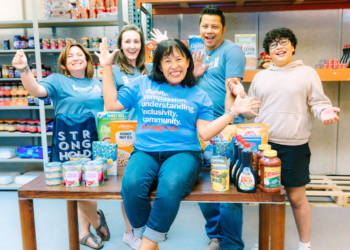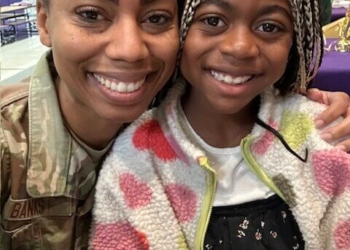If you surveyed people at my husband’s command (or any command for that matter) about what has affected their morale the most in the last year, you would find a variety of answers. But most of the criticism would have one thing in common:
“Due to the current coronavirus restrictions …”
Like most military families, our lives were turned upside down to meet the demands the pandemic suddenly threw at us: homeschooling multiple children using a variety of platforms, endless Zoom meetings for every member of the family, career changes, becoming caretakers for our immediate family members with limited available medical care — and the list goes on. Military families know we aren’t alone in our struggles, but for many of us, these struggles have become hard to sustain.
Aside from military treatment facilities (MTF), it is not a command’s responsibility to facilitate medical care to families but their support can make all the difference in keeping morale high for the affected service member so they can complete the mission at hand. When I was hospitalized for complications arising from not being able to see my own doctors due to COVID-19 restrictions for the disabilities I acquired while in the Navy, my husband found himself unable to give his whole focus to his workload. We soon realized that some of the programs we would have used for outside support were not available to us either because of lack of funding or COVID-19 restrictions.
Dear Big-Mil, we need funding for our programs back.
I am beyond grateful that my husband’s command allowed some flexibility for my husband while I was hospitalized so that he could cover my most important obligations, such as driving children to and from school and medical appointments. During the pandemic, the command has also given my husband extra time off to deal with my son’s three surgeries.
What worries me is that our story isn’t unique — many of my military friends and caretakers across the globe are feeling overwhelmed as their spouses and children try to meet on-going restriction requirements at work and school while also somehow meeting the operational tempo. They all feel they are stuck in what my doctors have called “survival mode.”
We need our support programs more than ever, and we need them to operate in a safe manner before we end up requiring crisis or emergency services. We need programs to keep our kids busy (bonus points for outdoor programs where feasible), we need more social workers across the board, and we need to stop relying on spouse volunteers to make all these programs run efficiently.
Read: DOD launches text message service to boost overall wellness and combat stress during COVID-19
Local programs, such as the USO food distribution programs, need more attention and support from the local community. Our local USO is out there, talking to our local business owners and letting them know how simply donating their excess food inventory to the USO can benefit our community. When finances are tight, I know I can call my local USO and get on the next distribution list, allowing some of our grocery budget to be reallocated for bills.
In the process, I have been reaching many military families through volunteer work as the communications director of the Soccer Coalition Against Racism. Our mission is to simply end the pay-to-play aspect of soccer in our local community. As a bonus, I see more and more military children engaging in our free weekly soccer programming — right in their backyard, rather than driving 30 minutes to one of the local bases to pay to play.
Programs like these help families alleviate some stress and feel cared for during a difficult time.
Please, Big-Mil, if you’re listening — take the multitude of surveys we complete each year and actively listen to what we say that we need and implement the programs and policies that make sense to address issues occurring in the ranks right now.
Read comments








































